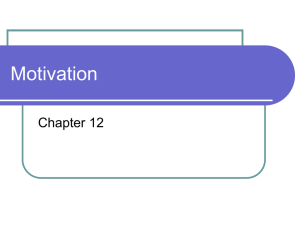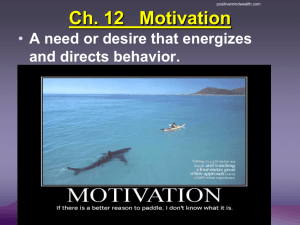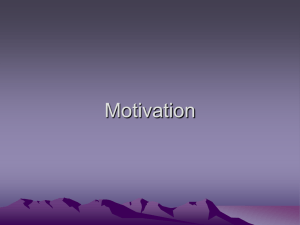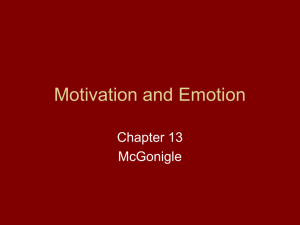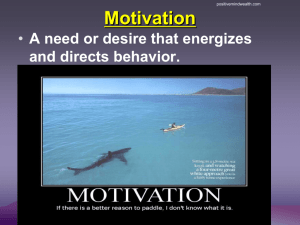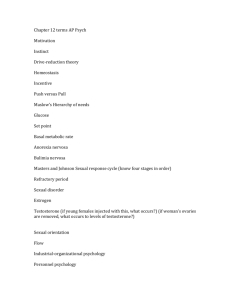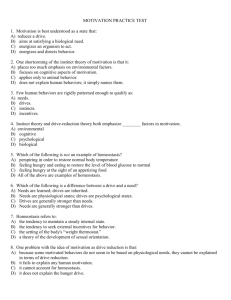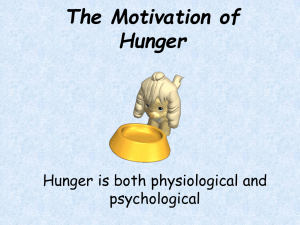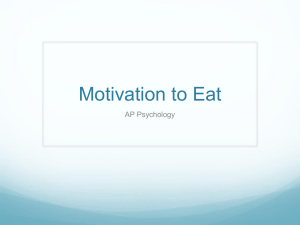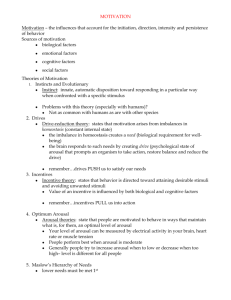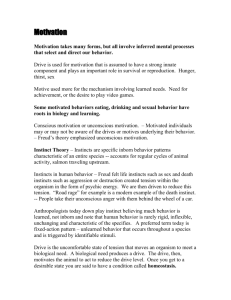Hunger - AP Psychology Community
advertisement
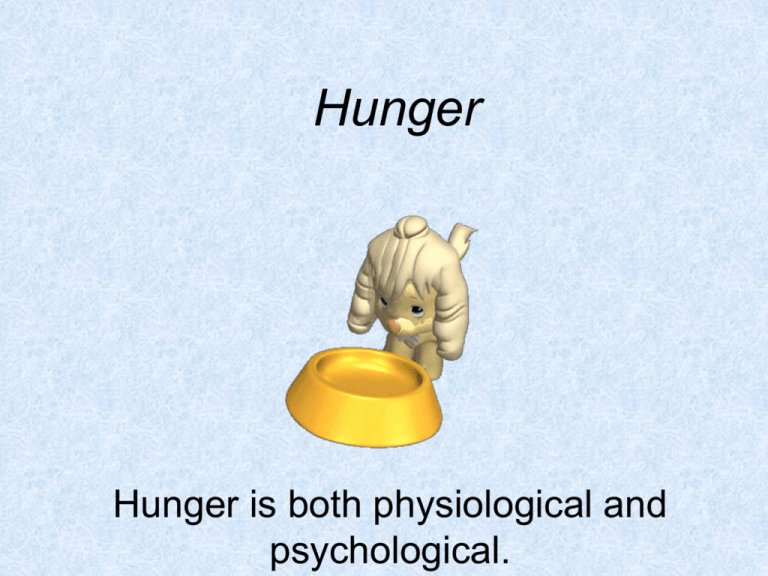
Hunger Hunger is both physiological and psychological. Physiology of Hunger • Washburn’s studies showed hunger was partially related to the stomach. • But those with their stomachs removed still feel hunger. Body Chemistry • Glucose • The hormone insulin converts glucose to fat. • When glucose levels drop- hunger increases. The Brain In the 1960’s it was discovered that hunger comes from……….. The Hypothalamus The Hypothalamus & Hunger • Along the sides of the hypothalamus is the lateral hypothalamus: which brings on hunger. Stimulate the lateral hypothalamus and even a well fed animal will begin to eat. Lesion the lateral hypothalamus and a starving animal will have no interest in food. The Hypothalamus and Hunger • Along the lower middle section of the hypothalamus is the ventromedial hypothalamus: which depresses hunger. Stimulate the ventromedial hypothalamus and the animal will stop eating Lesion the ventromedial hypothalamus the animal will continuously want to eat. How does the hypothalamus work? Two Theories Set Point Leptin • Hypothalamus acts like a • Leptin is a protein thermostat. produced by bloated fat cells. • We are meant to be in a certain weight range. • Hypothalamus senses rises in leptin and will • When we fall below curb eating and weight our body will increase activity. increase hunger and decrease energy • Can leptin injections expenditure (Basic help me? Metabolic Rate). • What happens if we go above our set point? The Psychology of Hunger • Externals: people whose eating is triggered more by the presence of food than internal factors. Taste Preferences Food taste better and we chew less when we are hungry (beginning of a meal). Food tastes worse and we chew more when we are not hungry (at the end of the meal). Its weird, the better the food tastes, the less time we leave it in our mouths. Culture and Taste Eating Disorders Anorexia Nervosa • An eating disorder in which a normal weight person diets and becomes significantly underweight, yet, still feeling fat, continues to starve. Eating Disorders Bulimia Nervosa • An eating disorder characterized by episodes of overeating, usually of high caloric foods, followed by vomiting, laxative use, fasting, or excessive exercise. Are these disorders cultural? Body Image
